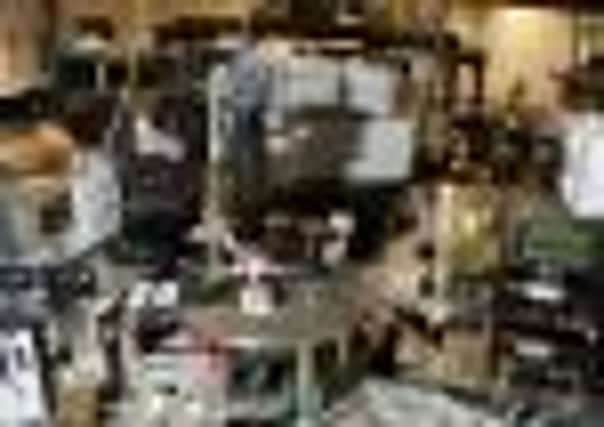Martin Flanagan: Let’s keep talk of fresh recession in proportion


But a lurch back into negative growth is probably less of a worry to business than the continuing failure to resolve the debt crisis in Europe.
The substantial pressures on British business from events across the Channel, our biggest exports market, are of a different magnitude to what might only be a shallow new UK recession anyway, particularly if Europe gets its act together.
Advertisement
Hide AdAdvertisement
Hide AdEven though the yields on sovereign eurozone debt in troubled countries like Italy, Portugal and Spain are now heading in the right direction, and not cutting those countries’ finances off at the knees, the crisis is still the biggest drag on the investment intentions of British business.
That is more important than whether the UK enters a technical recession (two quarters of negative growth) by next Easter, even if it would be so soon after the last one in 2008-9.
And let’s be honest. Our economy has been virtually stagnant for extended periods since then anyway. I doubt if it exercises most people whether the economy is showing a 0.2 per cent shrinkage, as in the final quarter of last year, or an anaemic 0.2 per cent growth. It still feels pretty much like a recession on the street.
Britain has a trillion pounds of debt, consumers are deleveraging, and a cautious private business sector is only slowly taking up the public sector slack, preferring instead to slam the brakes on investment spending until there is some sustainability in this most feeble of “recoveries”.
The latest manufacturing surveys from the CBI both north and south of the Border were hardly a reason for rejoicing, with investment plans this year by Scottish manufacturers, in particular, being sharply retrenched.
But there are some positives to keep recessionary spectres in perspective. Apart from some apparent progress in the eurozone crisis, this includes China’s continuing resilience as the commodity consumer of first and last resort, and the flurry of more positive data out of the United States.
And, ironically, if the UK fell into recession again that would undoubtedly speed up the Bank of England’s probable opening of the taps on another round of quantitative easing to get the economy moving again.
It should also be remembered alongside the depressing manufacturing data that the sector these days represents just 12 per cent of the economy rather than the 30 per cent it enjoyed in the early seventies.
Advertisement
Hide AdAdvertisement
Hide AdIn short, the odds of a double dip have shortened and let’s hope there is enough momentum to avoid it. But if it does happen, let’s keep a sense of proportion.
Salmond proves he has the feet of a cat
FIRST Minister Alex Salmond has been cat‑footed in the latest skirmishing on the independence referendum.
The UK coalition government had recently said an independent Scotland would have found it all but impossible to mount the scale of taxpayer rescues that were necessary to bail out Royal Bank of Scotland and HBOS.
But Salmond finessed it with a London audience, saying the Bank of England (BoE) would remain the lender of last resort for any future distressed Scottish banks.
The First Minister says that, in line with retaining this link with the BoE, he has no problem in, at least for the foreseeable future, keeping sterling as the Scottish currency and accepting the UK central bank’s powers to set interest rates north of the Border even after independence. He clearly feels he can live with monetary dependence to get the greater prize of fiscal independence if a referendum goes his way.
However, a can of worms might have been opened. Presumably, any future banking bail-out in Scotland would be dependent on the UK central bank getting some guarantees on Holyrood’s fiscal policies. That begs the question of how independent the new administration would be when push came to shove.
Even so, you have to admire Salmond’s ability to allow an independent Holyrood to have its cake and eat it on financial issues post any vote for independence.